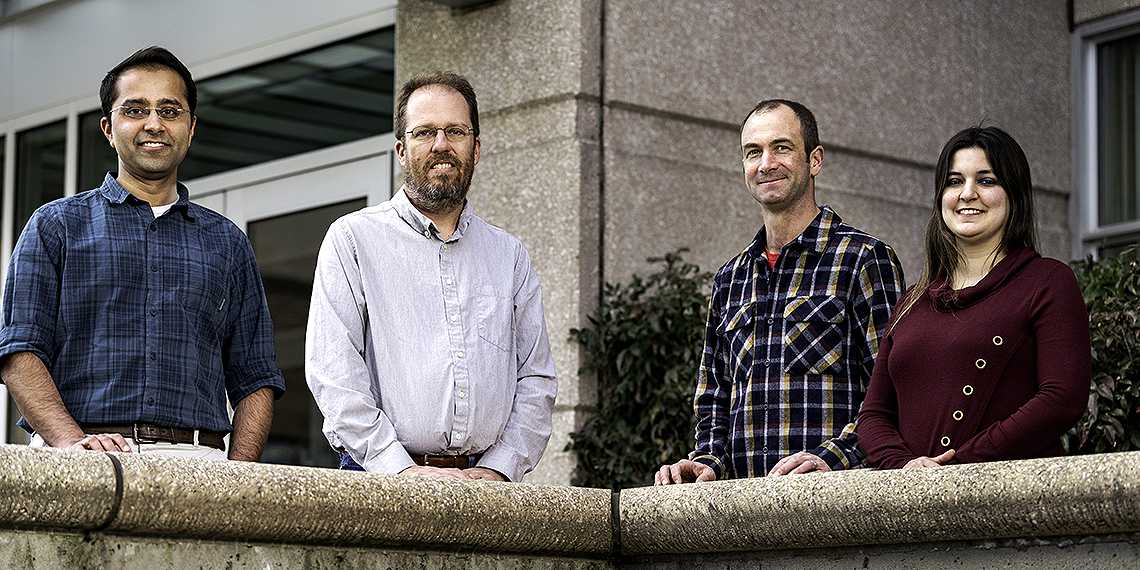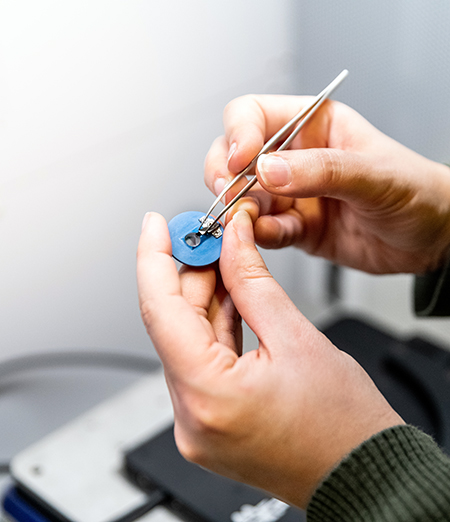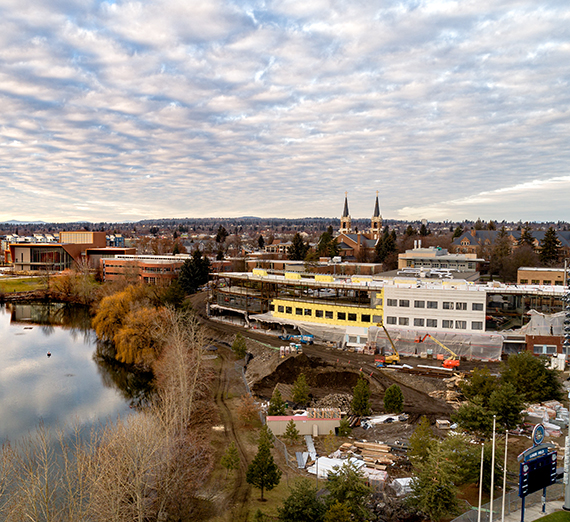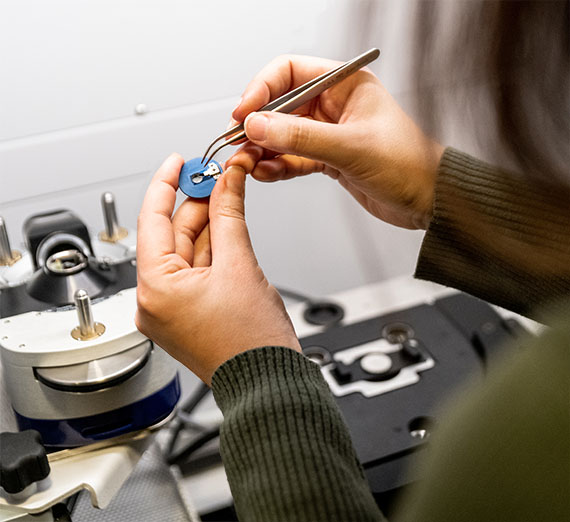Gonzaga Acquires Atomic Force Microscope, Thanks to NSF Grant

Fosters Transformational Research
SPOKANE, Wash. — A $267,000 grant from the National Science Foundation has allowed Gonzaga University to acquire an ultra-modern atomic force microscope (AFM) — providing students and faculty in the School of Engineering and Applied Science and the College of Arts and Sciences with a tool for transformational collaborative nanoscience research.

The tool will facilitate experimental methods previously impossible for faculty and students in chemistry, biochemistry, biology and the School of Engineering and Applied Science — amplifying the impact of research papers and improving the competitiveness of grant proposals that involve the study of biological processes, Khare noted.
“With recent growth in Gonzaga’s science faculty and the diversification of faculty research expertise, there is a growing need for advanced tools capable of measurement and characterization at the nano- and atomic-length scales,” Khare said, adding that this experimental nanoscience research will not only boost interdisciplinary undergraduate research at Gonzaga, but will benefit the entire community.

Nanotechnology involves structures usually 1-100 nanometers; for perspective, a nanometer is a billionth of a meter.
“As a one-of-a-kind instrument in the region, this AFM will establish Gonzaga University as a hub for nanoscale research and innovation in the Eastern Washington region,” Khare said, adding that experience using state-of-the-art instrumentation like the AFM can be transformative for undergraduates.
Atomic force microscopes are sophisticated instruments used for topographic and chemical imaging, as well as measuring mechanical properties. They are able to capture three-dimensional topography, making them more efficient than scanning electron microscopes that provide magnifications in only two dimensions.
Engineering Impacts
The AFM will benefit engineering studies by strengthening student-led research in tribology, the study of friction, wear, lubrication, and the design of bearings, which allows for the design of materials that improve automotive energy efficiency. Nanotechnology-enabled advances in materials design are widely recognized as key for transforming the bulk properties of materials.
Biochemistry Impacts
In biochemistry research, complexes between large molecules such as proteins and DNA are both incredibly important for the proper function of a cell, but also difficult to study due to their size and complicated structure. For example, the recognition of specific sequences of DNA by biological models, such as proteins, is an essential step for many cellular processes like gene regulation and DNA repair. The inability of proteins to accurately target DNA is linked as a cause of numerous diseases, including cancer, and many neurological disorders.
Many key regulatory processes such as metabolism, inflammation, cancer, and many others depend on protein-protein interactions that are difficult or impossible to image by commonly available techniques. The study of how these complexes form and how they change in response to changes in the cellular environment is at the forefront of advances in a great many areas of biochemistry. The AFM provides a less expensive and more time-efficient method for researchers to image and analyze proteins bound to DNA and to each other. This, in turn, allows for the visualization of these complex systems in near native environments — crucial to building understanding of how they function.
Part of Integrated Science and Engineering Facility
The AFM is housed in Khare’s tribology lab in the Herak Center for Engineering and will be moved to the $56 million Integrated Science and Engineering facility, which is under construction and scheduled to open by fall semester 2021. Dedicated to exemplary teaching, learning and undergraduate research, the facility will add more than 82,000 square feet of labs, classrooms, faculty offices and a special “collaboration studio.” The ISE will contribute to a total of more than 270,000 square feet dedicated to classroom and laboratory education for STEM (science, technology, engineering and math) disciplines.
Other Impacts
The AFM contributes to a collaborative STEM environment expected to:
- Open new doors for students interested in emerging fields of study, such as bioengineering;
- Prepare students better for graduate school and careers in an increasingly interdisciplinary world;
- Provide numerous opportunities for scientific outreach for both K-12 students as well as teachers;
- Attract more highly qualified faculty in biophysics, nanomedicine, and advanced materials research.
- Academics
- Careers & Outcomes
- College of Arts & Sciences
- School of Engineering & Applied Sciences
- Academic Vice President
- Sponsored Research and Programs Office
- Mechanical Engineering
- Biochemistry
- News Center




